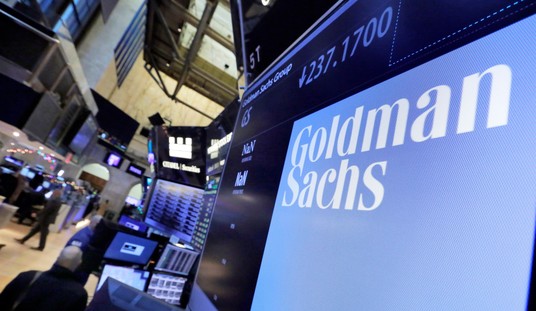Yesterday, an undated memo from the chair of the Republican Party of Virginia surfaced, in which Pat Mullins announced the validation process for candidate petitions in the presidential race to qualify for the primary ballot. This led some to claim that the RPV had changed the rules at the last minute, keeping Rick Perry and Newt Gingrich from getting onto the ballot. Mullins responded to this speculation in a lengthy statement, reprinted at the Virginia blog Bearing Drift, in which Mullins states that the memo went out to all campaigns in October:
From the earliest days of the campaigns, RPV has actively told candidates that Virginia’s signature requirements could be a difficult legal requirement to meet for those who were new to Virginia politics.
In October 2011, RPV formally adopted the certification procedures that were applied on December 23: any candidate who submitted over 15,000 facially-valid signatures would be presumed to be in compliance with Virginia’s 10,000 signature law. …
Candidates were officially informed of the 15,000 rule in October 2011, well in advance of the Dec. 22 submission deadline. The rule was no surprise to any candidate – and indeed, no candidate or campaign offered any complaints until after the Dec. 23 validation process had concluded.
Despite this early notice and RPV’s exhortations to candidates, only one candidate availed himself of the 15,000 signature threshold – Governor Mitt Romney. RPV counted Governor Romney’s signatures, reviewed them for facial validity, and determined he submitted well over 15,000. Never in the party’s history has a candidate who submitted more than 15,000 signatures had 33 percent invalidated. The party is confident that Governor Romney met the statutory threshold.
Rep. Ron Paul submitted just under 15,000, and was submitted to signature-by-signature scrutiny on the same basis as the other candidates who submitted fewer than 15,000 signatures. After more than 7 hours of work, RPV determined that Rep. Paul had cleared the statutory 10,000/400 signature standard with ease.
The RPV had sent out the verification requirements to all campaigns in March of this year, with the advice to collect between 15,000 and 20,000 signatures, as well as noting the requirements in state law for addresses for each signature, and so on. The only change that took place in October was the decision to accept 15,000 signatures as prima facie evidence of qualification without having to verify each signature, a change that made ballot access easier, not more difficult. All campaigns got two month’s notice of this change, and only one took advantage of it — Mitt Romney’s. Ron Paul’s campaign just missed the cut and the RPV had to verify each signature. Otherwise, the verification standards for the signatures didn’t change at all, which they couldn’t, as those are set by state law in Virginia.
Other candidates can challenge this interpretation of Virginia law, but the only consequence of that challenge would be to force the RPV to individually validate Romney’s signatures in order to establish equal treatment. That won’t put more signatures on paper for either Gingrich or Perry.
Moreover, the idea that the Republican Party in Virginia has a stake in narrowing the field is, frankly, strange. All this does is make Virginia less relevant, not more, in the primary process, hardly the outcome that a state that fought for a Super Tuesday slot wants. None of the other candidates will bother to campaign in the Old Dominion now, which will hurt Republicans running for state offices as well as Congress as money goes elsewhere in this cycle. The incentives for the RPV are all tilted in the other direction — getting more candidates to spend more time and money in their state in order to help boost Republican fortunes in Virginia.
Mullins concludes with a little warning shot across the bow of campaigns claiming victimization in this process:
The party will discuss the specific nature of their shortfalls if necessary. But the failure of these two candidates to meet the state requirements does not call into question the accuracy of the Party’s certification of the two candidates who are duly qualified to appear on the ballot.
I’m sure that the Gingrich and Perry campaigns don’t want any more discussion of organizational incompetence as the primaries rapidly approach. Clearly, though, Republican campaigns had ample warning of the verification process and the option to skip it by following the RPV’s advice from March to get at least 150% of the legally required signatures to ensure ballot access.
Update: On a tangent, the Virginia GOP have reinstated a “loyalty oath” for the primary, bringing it back from 2000:
Voters who want to take part in the Commonwealth’s March 6 Republican primary will be asked for a November commitment.
Virginia Republicans requested the Va. State Board of Elections to allow it to ask primary voters for a loyalty oath, promising to support the Republican party’s nominee for president in the general election.
“The code of Virginia allows for political parties to require individuals who wish to participate in presidential primaries to sign a pledge that he or she will support the party’s candidate in the general election,” said Justin Riemer, deputy secretary of the Virginia State Board of Elections. For this year’s primaries, Virginia’s Republican party chose to exercise that right.
According to the Times-Dispatch, “The pledge will require the voter to sign and to print his name beneath a line that says: “I, the undersigned, pledge that I intend to support the nominee of the Republican Party for president.”
Maybe they should have made that a requirement of the candidates, since one of the two on the ballot won’t make that same commitment. It’s obviously not binding, but it might offend a few independents and Democrats, and, er … you know who that helps.








Join the conversation as a VIP Member